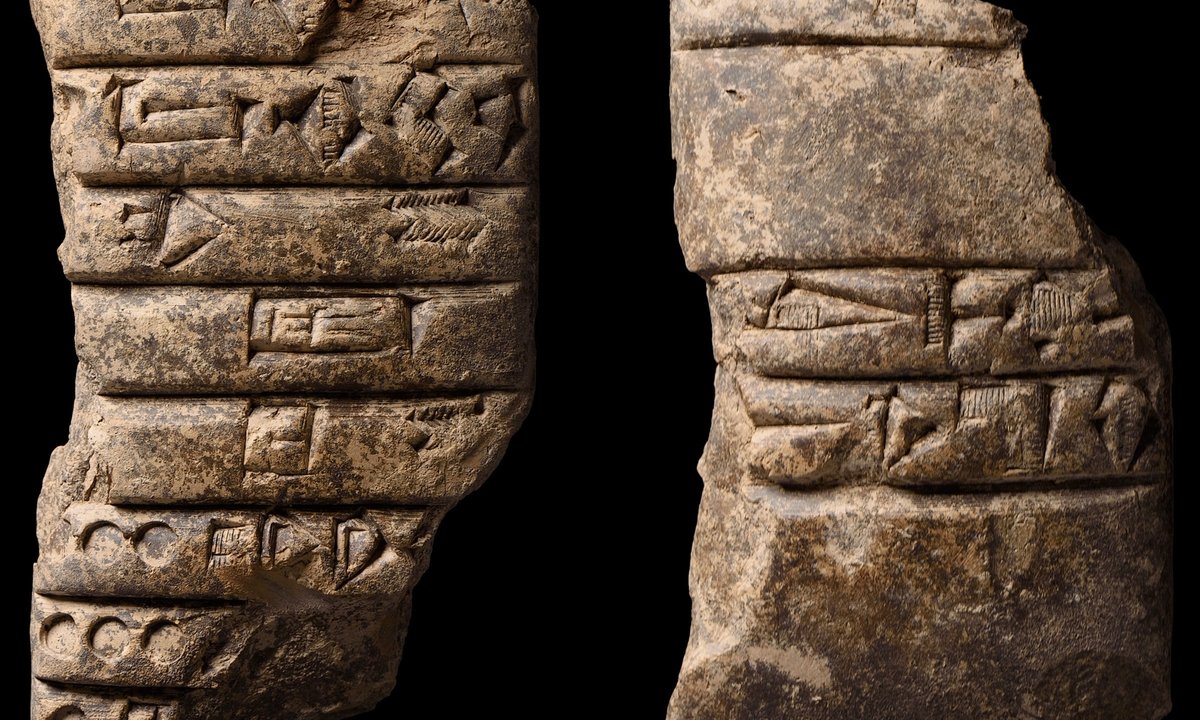
""These are the remains of the scribal training process for the administrators of the state's archives under Akkad imperial rule. It's a fabulous discovery!""
""Naram-Sin, the mighty, god of Akkad, king of the four quarters (of the world): Lugal-ushumgal, the scribe, governor, your servant.""
""It says it all, Total control.""
"Rey says, a standard metric system used across the empire (the Akkad-gur) to measure quantities of resources such as flour."
Archaeologists led by Sebastian Rey of the British Museum have discovered over 200 clay tablets in southern Iraq, dating to the Akkad period (2300-2150 BC). These artifacts provide significant insights into the bureaucracy of the Akkadian Empire, including documents about resource management and the training of scribes. Notably, one tablet details the seal of Lugal-ushumgal, a governor, underlining Naram-Sin's authority as a divine ruler. This discovery reflects not only administrative practices but also Naram-Sin's cult of personality, showcasing an advanced system of governance.
Read at The Art Newspaper - International art news and events
Unable to calculate read time
Collection
[
|
...
]